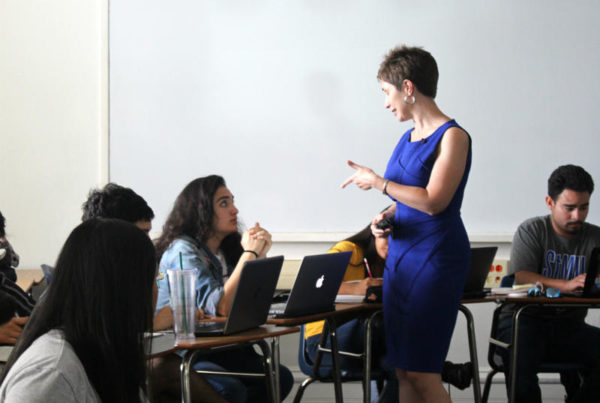How can new college students be sure they’re ready to succeed? And what can faculty do to help?
Marc Airhart is communications coordinator for the College of Natural Sciences at the University of Texas at Austin. He also produces the monthly science podcast “Point of Discovery” about breakthrough discoveries made by scientists at the university.
In his latest episode, Airhart focuses on “the science of student success” – how first-year college students can adapt to the classroom environment.
“First year college students have been in class for a few weeks now,” Airhart says. “But some are still in a state of shock feeling like they don’t belong.”
To better understand effective ways professors can help new students, Airhart spoke to teaching assistant Ivonne Martinez about her experience as a freshman.
Martinez was a star math student during high school in San Antonio, Airhart says. But her freshman calculus class at the University of Texas proved to be a lot harder than she expected.
“I didn’t know what was going on and I just felt out of place as a whole,” Martinez says. “I was like, ‘What am I doing?’ And that kind of made me panic.”
Airhart reached out to Martinez’ calculus professor, Philip Uri Treisman, who has been teaching the class for about 50 years, to find out how he helped Martinez become a successful student.
“He’s always experimenting, looking for new ways to help students who struggle like Ivonne,” Airhart says. “He knows that the transition to college can be especially hard for students who are low-income or first-generation, and so he’s developed three tactics that are all based in educational psychology.”
Treisman’s first tactic for encouraging success is to try to make a personal connection with all his students, Airhart says.
“He memorizes every student’s name and there’s like 120 in each class,” Airhart says. “He also is constantly telling them that they belong and that he believes in them that they can do it.”
Then comes the second success tactic – making the class very difficult, even for students who are struggling the most and those who came from schools that didn’t prepare them for college, Airhart says.
“What [Treisman] saying is ‘when you’re struggling, it’s not a sign that you’re dumb. It’s a sign that you’re learning,’” Airhart says.
Treisman’s third tactic to turn newcomers into successful students is to provide a lot of academic and moral support.
“He does things like put them in intensive study groups and he’s always looking out for them,” Airhart says. “He’s kind of like a mother goose looking after her goslings. It’s science, but it’s not magic.”















